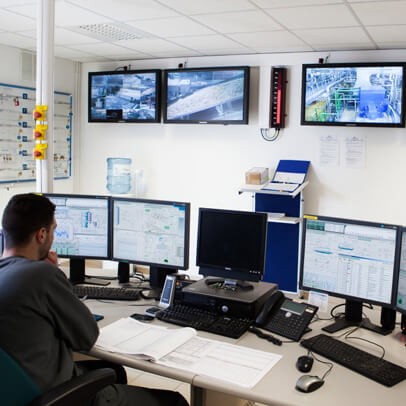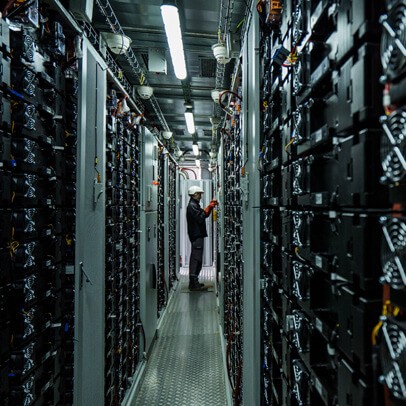Agregio Solutions, an EDF subsidiary, develops systems designed to incorporate intermittent renewable energy into the power grid, thus contributing to its permanent balance.

Why are “flexibilities” increasingly necessary in the electrical system?
For France to meet its target of 40% of renewable energy in its energy mix by 2030, compared to the current 20%, the French electricity system must incorporate an growing share of intermittent renewable energy (wind, solar, etc.). Operating such a system requires the development of ”flexibilities”; that is, a means of allowing voluntary power modulation, upwards or downwards, in terms of injection or withdrawal on the power grid. These flexible methods are essential to ensuring the proper functioning of the electrical grid, one of the fundamental needs of which is to maintain the balance between electricity injections and withdrawal of at all times.

Agregio Solutions, a key player in flexibility and aggregation in France
Created in 2023 from the merger of Agregio and Store&Forecast, both 100% subsidiaries of EDF SA, Agregio Solutions is France's leading aggregator and a recognized player in flexibilities. These flexibilities achieve their full impact when associated with storage or smart energy management. Agregio Solutions develops energy systems that contribute to maintaining the permanent balance of the electricity grid in order to incorporate variable renewable energy, which makes up an increasing share of the energy mix.
Agregio Solutions has a team of more than 160 people working in France and overseas to develop sustainable energy systems, reflecting the commitments of EDF and its partners.

Flexibilities, aggregation…are Agregio Solutions’ offers right for you?
Renewable energy producers, renewable energy project or storage developers, industrial or service businesses, network managers…Agregio Solutions might be the right fit for you.
The energy systems developed by Agregio Solutions allow you to generate new revenue while contributing to the security of supply or profitability of your existing or additional installations, such as Corporate Power Purchase Agreements. These systems include the valorization of flexibilities linked to production or consumption (load shedding) on the markets, the valorization of storage assets, the aggregation of these flexibilities using a Virtual Power Plant, smart energy management associated with storage to maximize self-consumption or to support independent systems such as microgrids.
Examples of Agregio Solutions’ Expertise
The Virtual power plant
Agregio Solutions, as a Balance Responsible Entity, has developed a virtual power plant that aggregates a combination of several energy sources, or assets, which are not centrally controlled, unlike in conventional (such as nuclear or hydraulic) production plants. The virtual power plant allows these sources to be activated and optimized via a system of algorithms. These activations, valorized on different energy markets, contribute to the balance of the electricity grid managed by RTE. Developed by the teams of Agregio Solutions and continuously improved, the virtual power plant operates 24/7.
The corporate PPA
A contract signed between an EnR producer, a consumer, a supplier and an aggregator. It is based on the purchase of a volume of renewable energy which will be incorporated into the consumer’s overall supply contract. This type of contract allows part of the volume of the energy delivered to the end consumer to be secured and to guarantee the price during a certain length of time. Agregio Solutions’ expertise supports clients wishing to sign such a contract by aggregating the volume of renewable electricity (by forming a "band" or "dome" of continuous current) and to pass it on to the consumer's supplier to be integrated into the supply contract.
Batteries for storing energy
To maintain the supply-demand balance and thus contribute to maintaining the frequency of the grid, operators traditionally use "flexible" plants for which the power can be varied easily, prioritizing gas plants. As early as 2014, with the creation of the first specific market in the US, batteries have proven capable of rendering this service. Given the context of recent months (the war in Ukraine, pressure on natural gas), batteries have become a recognized solution on the market for participating in frequency regulation. If needed, batteries can also help reduce the risk of rolling blackouts by supporting the grid during the 2- to 3-hour consumption peak in winter.

